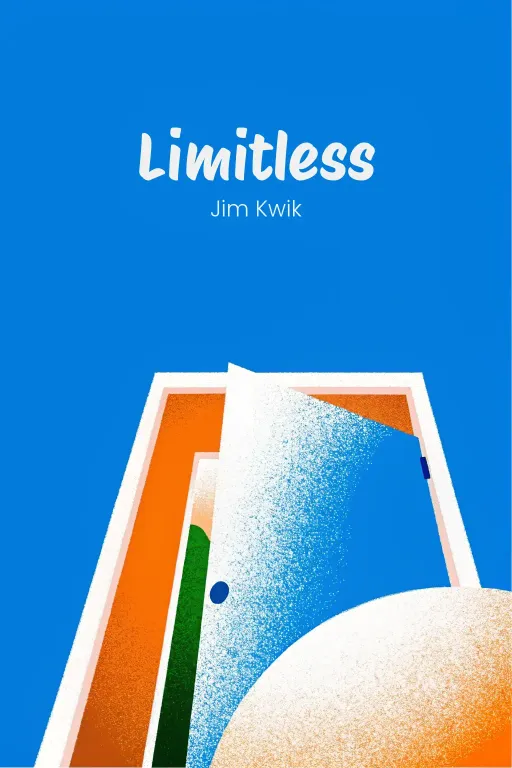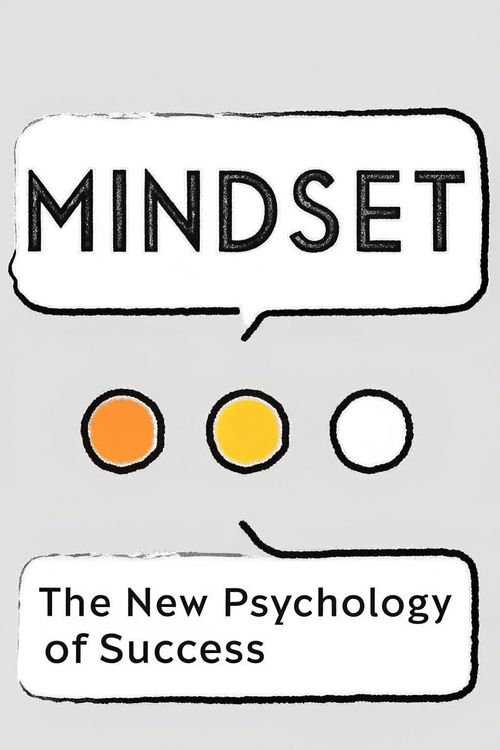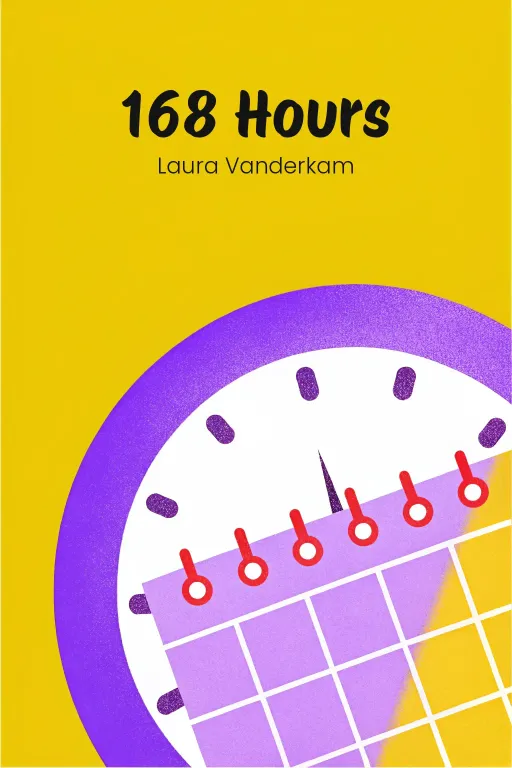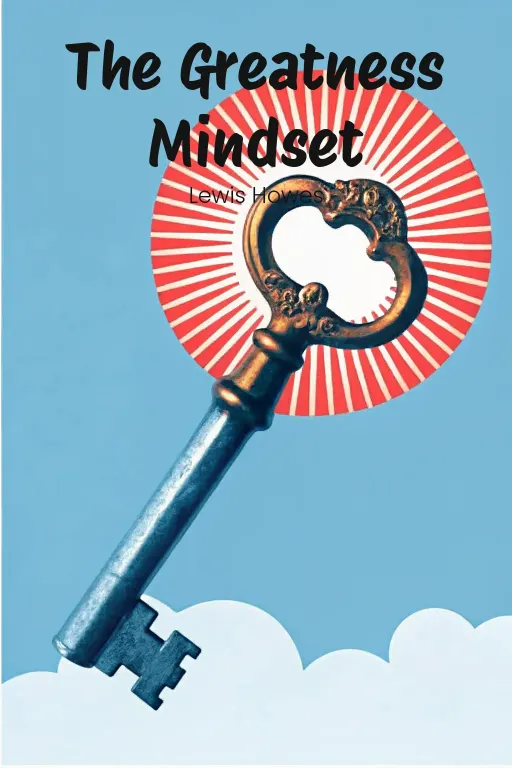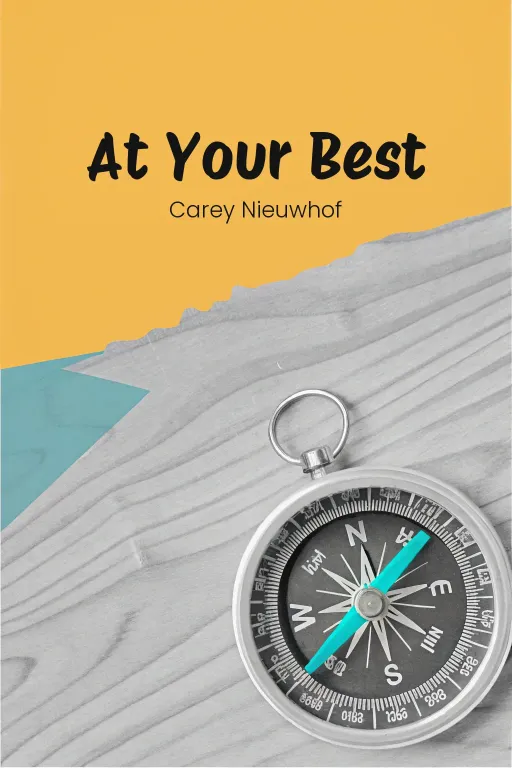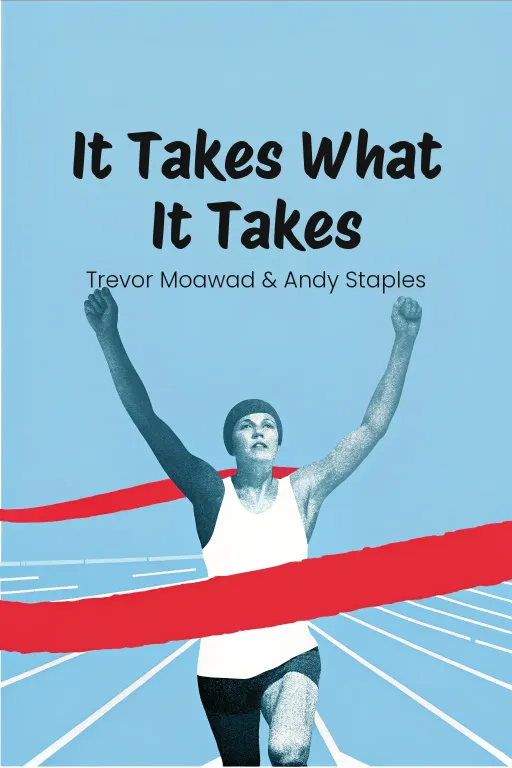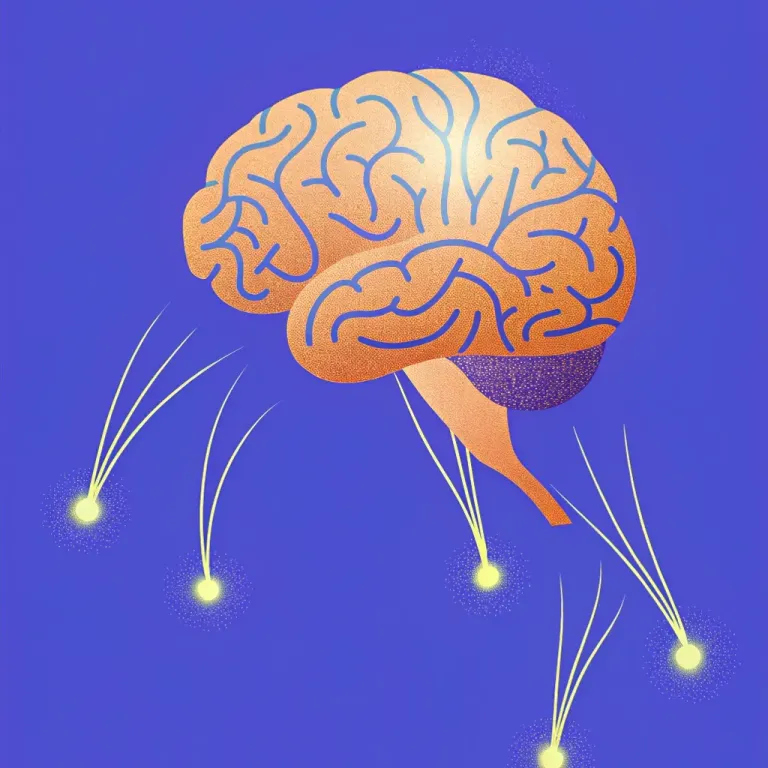
Unleash Your Brain's Hidden Power!
Podcast by Beta You with Alex and Michelle
Upgrade Your Brain, Learn Anything Faster, and Unlock Your Exceptional Life
Unleash Your Brain's Hidden Power!
Part 1
Alex: Hey everyone, welcome back to the podcast! Today we're diving headfirst into a book that promises to change the way you think, learn, and grow and that book is “Limitless” by Jim Kwik. If you've ever felt, well, stuck, like there's this invisible ceiling on your potential, this episode is definitely for you. Michelle: Yeah, and let's be honest, who “hasn't” felt that way at some point? Whether it's struggling to maintain focus, frantically cramming before a deadline, or just feeling like you're not "cut out" for something, most of us run into these mental roadblocks. But what if those limits were just illusions, just stories we tell ourselves? Alex: Exactly! That's the core idea of “Limitless”. Jim Kwik isn't just telling you to "think bigger"; he's actually giving you a step-by-step guide to challenge those limiting beliefs, boost your learning abilities, and really reshape your habits. And all this, armed with science-backed strategies and some seriously practical wisdom. Michelle: The guy's personal story is incredible, really. Overcoming a childhood brain injury to becoming the brain coach for top performers, celebrities, and CEOs. Well, that's pretty impressive, right? It shows that his methods work. So today, we're going to break down three main concepts from the book. Alex: First up, we're talking about how to break free from those self-imposed limitations, just like Kwik did. So many of us are running on these old mental scripts, things like, "I'm just not good at this," or "That's not my strength." But often, those scripts are either outdated, or straight-up false. Michelle: Okay, then, we're diving into the good stuff: tools, tips, and hacks to supercharge your brain. We’re talking memory techniques, strategies for laser focus, and tactics to fend off those pesky digital distractions. It's like upgrading your brain's operating system. Alex: And finally, how do you make these upgrades “stick”? We’ll explore the essential habits and systems that keep your progress going long after the initial excitement has faded. Lasting change comes from being consistent, and Kwik gives us a roadmap to get there. Michelle: So, whether you want to learn faster, remember more, or just, you know, escape the endless scroll, stick with us... wait, no. Let's jump right in!
Becoming Limitless
Part 2
Alex: Okay, so picking up where we left off, let's really dive into Kwik's personal story. It's, like, such a powerful illustration of this critical mindset shift we all need to make, from seeing only limitations to recognizing possibilities. Michelle, the fact that he was labeled "the boy with the broken brain" is just, ugh, heartbreaking, right? Sadly, so many people can relate to that feeling. Michelle: Absolutely. Those kinds of labels, they really stick with you, don't they? And what's insidious is they don't just stay on the surface, they burrow into your psyche and kind of redecorate your entire self-image. But the real turning point is, despite that label having the potential to completely derail him, Kwik managed to flip the script. Alex, can you help us connect the dots here? How exactly did he manage to achieve that? Alex: Well, initially, he didn’t. He wrestled with it for years, just completely crushed by the weight of that label. But the breakthrough came when he discovered comic books. Characters like the X-Men, for Kwik, they weren’t just superheroes; they really symbolized resilience. Think about it: these were mutants, outcasts in society, who drew their strength from their unique abilities. That really sparked something in him. He started to view his brain, not as broken, but as possessing its own capacity for transformation. It’s such a striking example of how inspiration from unexpected places can really challenge our internal narratives. Michelle: That's pretty fascinating. So he basically saw himself reflected in these characters and thought, "If they can do it, why can't I?" Now, playing devil's advocate for a moment, is that level of reframing truly within reach for everyone? I mean, not all of us are going to stumble upon metaphorical superhero mentors, are we? Alex: That's a fair point, but I think Kwik's broader message is that it’s not about finding the perfect role model. It’s about uncovering something – or someone – that can shift your perspective. Even if superheroes aren't your thing, maybe it's a story, a real-life role model, or even just a mantra you choose to believe in. The secret is asking yourself: what if there's more to me than I've been led to believe? That’s where the seed of transformation is planted. Michelle: Okay, but let’s bring in the science here, Alex. Kwik discusses how the brain's neuroplasticity supports this whole idea, right? Feeling all inspired is great and all, but how does that inspiration translate into actual cognitive change, though? Alex: Neuroplasticity is key. It refers to the brain's remarkable ability to reorganize itself by forming new neural connections. So when Kwik talks about shifting his mindset, he's essentially tapping into this very principle. He reframed his teacher’s words from "I have a broken brain" to "I'm discovering my unique strengths," as an example. That kind of positive self-talk isn't just feel-good fluff; it literally rewires the brain over time, creating new pathways for thought and behavior. Michelle: So, what you're suggesting is, instead of clinging to limiting beliefs like "I'm bad at math" or "I can't focus," people need to consciously replace them with something more constructive, like "I'm learning how to approach challenges in a different way." But Alex, doesn’t that sound deceptively simple? I mean, words alone can’t magically undo, you know, decades of ingrained thinking. Alex: No, you’re absolutely right. Words alone aren’t enough. It's about backing them up with intentionality and action. Kwik suggests practical methods, things like self-awareness journaling. So when you catch yourself thinking, "I'm bad at this," you write it down, acknowledge the thought, and then actively disrupt it by replacing it with an empowering one. Another powerful tool is visualization: picturing yourself succeeding at something builds the mental muscle to believe it's possible. Michelle: Visualizing, huh? So, if I sit here and imagine myself conquering a Rubik's Cube in record time, will I suddenly wake up a puzzle-solving wizard? Alex: Not exactly. But what it does do is prep your brain for success. Visualization actually engages the same neural pathways involved in the real activity. That’s why athletes use it to boost performance. Combine that visualization with actual, consistent practice, and you’re essentially rewiring your brain to believe that you can do it. Michelle: Alright, I’m following you. But let's address the big elephant in the room here - adversity. Kwik mentions that limiting beliefs often stem from past experiences. How did he dismantle his own, and how can the rest of us follow suit? Alex: Kwik uses a three-step method he calls “limiting belief dismantling.” First, you identify the belief. For him, it was rooted in being labeled as having a "broken brain." Second, you challenge its validity. He asked himself, “Is this belief actually true, or is it just a projection of my past experiences?” Reading success stories of others overcoming learning struggles was also crucial here, because it expanded his sense of what was possible. Michelle: And the final step? Alex: Replace the limiting belief with an empowering one. So, instead of dwelling on what he couldn't do, he reframed it as, “I’m capable of growth and improvement.” Now, this wasn't an overnight switch, but by coupling this positive belief with actions – like actively practicing reading – he gradually proved its truth to himself. Michelle: That's actually pretty actionable, isn’t it? Identify, challenge, replace. But how do you maintain the momentum? Because change like this requires more than just a single breakthrough moment, right? Alex: Absolutely, and that’s where mentorship becomes invaluable. Kwik constantly emphasizes the importance of surrounding yourself with people who uplift and believe in your potential. In his own journey, someone at university encouraged him to not just reframe how he learned, but how he thought about learning as a concept. That external influence can provide the push we all sometimes need to break through the mental walls we build around ourselves. Michelle: So, let me see if I've got this right: it's about rewriting the stories we tell ourselves, putting in the necessary work, and, importantly, leaning on the support of the right people. It seems to bring us full circle. Your past doesn’t dictate your future, unless, of course, you allow it to. Alex: Exactly! Kwik's journey is essentially a blueprint for anyone feeling restricted by their perceived limitations. Rewrite that internal narrative, take decisive action, and surround yourself with supportive influences. And that's the path to unlocking your potential.
Enhancing Brain Performance
Part 3
Alex: Okay, Michelle, so, we've established the power of mindset, and now let's get into how we actually “do” this . Kwik lays out techniques to enhance brain performance, rooted in neuroscience, which is really exciting . Our theme today? How to learn, remember, and, crucially, “retain” information better . Michelle: Right . And, Alex, it's all about the practical application, isn't it? So, Kwik gives us these brain-enhancing strategies… and you say he's got three core techniques? Alex: Exactly . He organizes it beautifully: active recall, spaced repetition, and the loci method . They’re not just whimsical ideas; they’re science-backed and effective . Let’s dive into “active recall” first . It’s really the foundation for long-term learning . Michelle: Active recall ... so, like, remembering stuff without looking, instead of just re-reading something? Seems pretty obvious, honestly . So why’s it “so” effective? Wouldn't just going over the material again and again be enough to, I don't know, hammer it into your brain? Alex: That's a key question, Michelle! Re-reading engages recognition, which is shallow . Active recall requires you pull info from memory “without” cues, which strengthens those neural connections . Think about it like exercising your brain— it is what turns short-term learning into long-term retention . Michelle: Okay, fair enough . But let's get specific . Got a good example of someone who’s actually used this and seen results? Alex: Absolutely . There’s the story of Maria, who was studying for a biology exam . She kept re-reading, but key concepts wouldn’t stick . Then, she switched to active recall, making flashcards and quizzing herself; it just clicked! So, instead of passively reading about cell division, she’d ask herself, “What are the phases of mitosis?” Really making herself work to answer . The struggle reinforced neural pathways, and boom, she wasn’t just memorizing—she was retaining . Michelle: Aha! So, the struggle to remember is “good”? Well, that's a mindset shift and a half . Usually, when we hit that wall, it's "Forget it, this is too hard", isn't it? So, Kwik is saying wrestle with it, because that's where the gold is? Alex: Precisely . Science verifies this . Studies show that recall – even when difficult – strengthens our ability to access that info later . So failing a little now helps you succeed a lot later . Michelle: Okay, I'm tracking . So, Alex, someone's listening, thinking, "Right, I need to try this active recall thing"... where do they even start? What are some go-to strategies? Alex: Flashcards are a classic, and you can use physical ones or use apps like Quizlet . Summarize what you’ve read by writing questions, forcing your brain to retrieve the information . Teaching is a form of active recall too! Michelle: Makes sense . Alright, let's talk about spaced repetition . This one seems counterintuitive to me . You're saying, instead of cramming all night, I should “space out” my studying over time? Doesn't that take longer? Alex: It might feel slower, but it’s “far” more effective . You aim to revisit material at intervals when you’re on the verge of forgetting – that is the sweet spot . There is a psychological principle called spacing effect and has been tested for centuries going back to Hermann Ebbinghaus and his forgetting curve . Michelle: Forgetting curve ... Isn't that the chart that shows how quickly we forget things if we don't reinforce them? Depressing! Alex: Totally! Ebbinghaus found that memory decays rapidly without reinforcement . Spaced repetition combats that decay by revisiting information right when you’re about to forget it . The timing is more effective than binge-learning everything in one go . Michelle: And you gave Daniel's Spanish vocab crash course as an example in the text . Lay that out for us. Alex: Sure . Daniel wanted to learn Spanish but struggled to retain words when reviewing them randomly and infrequently . He discovered Anki, which uses spaced repetition . It would bring up a word he’d just learned within hours, then in a day, then three, gradually increasing the interval as he mastered it . His vocab surged! Michelle: So, the app becomes a memory coach, nudging him at the perfect time? Alex: Exactly! It takes the guesswork out of “when” to review what, and that's what makes those tools valuable . Apps like Anki and Duolingo are great resources for implementing this . Michelle: I like this idea of timing being everything . But, Alex, seriously – how realistic is this for busy people? Does spaced repetition require a level of consistency and planning that, let's face it, most of us don't have time for? Alex: It only works if you fit it into your habits . Kwik’s approach is less about huge blocks of time and more about weaving it into small windows – five minutes here, ten there . Use your commute or breaks . Consistency, even in tiny doses, compounds over time . Michelle: Okay, fair enough . Let’s look at the one that sounds like it’s straight out of a fantasy novel: the loci method, or memory palace . Feels sort of magical, right? Alex: The loci method is based on visualization, linking abstract info to locations in a space where you are very familiar with, like your home . If you need to remember a sequence of items, you visualize them in distinct spots, say, a flamingo in your bathtub and when you mentally walk through that space, it triggers the memories . Michelle: And this isn't just some new-age gimmick; it's ancient, right? Didn't Greek orators use this to memorize these epic poems? Alex: It dates back to ancient Greece, where speakers recalled long speeches using it . Look at Jonathan, a memory athlete who memorized 200 random words using the loci method . He visualized his childhood home, with each word in a room, like a tiger guarding the living room sofa . This mental walk let him remember the sequence completely . Michelle: So, it's like creating a visual story in your mind . But why does that actually work? Is it just that we’re naturally visual creatures and our minds are better at retaining what we can see? Alex: Precisely . Our brains are great at recalling spatial and visual info . The hippocampus processes spatial navigation . The loci method pairs data with imagery and spatial cues so it taps into something our brains can already do well . Michelle: Let me guess – it takes practice, right? We couldn't just picture groceries scattered across our kitchen and become memory gurus. Alex: Practice is key, but fun . Start with something simple, like remembering a process using rooms in your home . Over time, translating info into memorable visuals becomes second nature . Michelle: So, active recall to strengthen neural pathways, spaced repetition to time our learning, the loci method makes memory visual... Combined, this sounds like an unbeatable learning toolkit . Alex: Agreed! And these techniques harness neuroplasticity, so you not only learn better, but you transform how you approach memory for life . It proves that with the right tools, your brain can adapt no matter where you start .
Sustainable Growth and Lifestyle Integration
Part 4
Alex: So, with these mental tools in hand, we've been looking at how to stay motivated and make these practices a part of our lives. Today, though, we’re taking a broader look at applying these growth principles daily—what Kwik calls a framework for sustainable growth and integrating it into your lifestyle. Michelle, this is where your "why," your energy, and your habits come together to build that limitless life he talks about. Michelle: Exactly, Alex, and I’m glad we’re stepping back to see the forest for the trees here. All of these techniques are great, but if they’re not connected to who you want to be and how you want to live, they’re just... isolated tricks, right? So, to kick us off, what’s the key to actually making these ideas stick in the long run? Alex: Purpose. Think of it as your internal compass and the fuel that keeps you going. Kwik stresses that when you link your daily routines to your core values and sense of purpose, your motivation shifts from external factors—like checking things off a list—to something that comes from within. He even uses the Wright brothers' story as an example. Even when people doubted them, their dream of human flight kept them focused, even in the face of failure or criticism. Their purpose wasn’t just a guide; it was their driving force. Michelle: The Wright brothers, always a solid example! But Alex, let me push you on this a little. What about our listeners who are thinking, "Purpose sounds grand, but my life is just paying rent and getting by?" How do they bridge that gap, connecting their daily grind to something bigger? Alex: That’s a valid point, and Kwik actually addresses it really well. He suggests starting simple, by reframing even the most boring tasks. Ask yourself, "How does this connect to what I truly value or want to achieve long-term?" For instance, if providing for your family is a key value, even your morning commute becomes linked to that purpose. It changes "just another day at work" into an expression of your deeper "why." Michelle: So, instead of trying to overhaul your entire existence all at once, you can start by identifying small alignments. Okay, makes sense. But let's redirect a bit, because even with a clear sense of purpose, what good is it if you're running on fumes? Energy management is key to fueling that purpose, isn't it? Alex: Absolutely. Kwik sees energy management as crucial for long-term growth. If you don’t actively take care of your physical and mental energy, the entire structure starts to crumble. He breaks it down into three main areas: physical health, mental clarity, and handling stress. For example, the foods you eat are directly associated with cognitive strength. Michelle: Right, and there’s that great example from the book about omega-3s. Eating fish might not instantly make you a genius, but the science clearly shows the cognitive benefits. Now, compare that to starting your day with a sugary donut or pastry and the inevitable blood sugar crash. By mid-morning, you'll be fighting brain fog. Alex: Exactly. And it’s not just about one-off choices. It’s about developing consistently smarter habits over time. Kwik even mentions the Mediterranean diet, which focuses on nutrient-rich foods, healthy fats, and antioxidants. It’s like high-octane fuel for your brain. Plus, stay hydrated, since the brain is mostly water—and you're already on your way to increased focus and clarity. Michelle: Okay, so, eat walnuts, drink water—got it. But let's tackle the thing most people struggle with: stress. Chronic stress is a powerful brain killer. What does Kwik suggest for managing it? Alex: Mindfulness practices, like deep breathing, yoga, or short meditations. Basically, these techniques calm down your nervous system. They help you get out of that constant fight-or-flight state. Even a five-minute break during the day can help you center yourself and save energy for the things that are important. He also underlines the significance of sleep—it’s not optional; it's critical for your brain to function at its best. Michelle: Makes perfect sense. Although, I can already hear some busy parents saying, "I barely have time to breathe, never mind meditate!" Any ideas on how to fit this into the chaos of real life? Alex: The trick is to make it manageable, small steps. Activities like a quick one-minute grounding exercise during a coffee break, or a simple stretch between Zoom calls, can make a difference. You don’t need to completely change your schedule. Just look for places where you can recharge. Michelle: Okay, so, phase one: fuel the system; phase two: protect the system. Now, onto habits—the third element of lasting growth. Without the right systems, all that purpose and energy won’t sustain itself. Alex, walk us through Kwik’s strategy for creating habits that stick. Alex: Kwik puts a lot of importance on starting small and being strategic about it. He talks about BJ Fogg’s Behavioral Model. The idea is to create micro-habits that are so simple, it’s almost impossible to fail—like flossing just one tooth. These tiny actions build momentum, which will lead to bigger habits. Michelle: Sure. Nobody wakes up one day and says, “I’m going to run a marathon,” without any training. First, you have to put on your shoes—literally and figuratively. But what about the mental side? What stops people from regressing to old patterns? Alex: Understanding how habits work is key. Kwik points out that habits follow a cycle: cue, craving, response, reward. For instance, let’s say you crave late-night snacks because you’re stressed. If you replace that cookie with a cup of calming tea, you're still taking care of the craving, but in a healthier way. Being aware of these cues and consciously changing your response can “really” make a difference. Michelle: So, what are some useful ideas for building habits? Besides the behavioral concepts, how do you make them part of a hectic life? Alex: Kwik suggests linking them to existing habits, which is known as "habit stacking." So, if you already brush your teeth in the morning, add something new to that routine, like a five-minute meditation. The existing habit will serve as both a reminder and a cue. Doing this over time, layering habits like this, makes them automatic. Michelle: Got it. Here's a challenge, though. What do you say to individuals who are hung up on waiting for “the perfect time”? You know, waiting for Monday, January 1st, or some future moment to start building good habits? Alex: Kwik’s answer is simple: Start now. He reminds us that perfectionism is often just procrastination in disguise. Even the smallest thing done today, minuscule as it may seem, creates forward motion. It's about progress, not perfection. Michelle: That’s a solid point. So, purpose anchors you, energy keeps you going, and habits make it automatic. But one last thing Kwik stresses is the importance of community. How do the people around us influence all of this? Alex: Relationships play a big part. Kwik talks about creating a social circle that motivates, inspires, and holds you accountable. He gives the example of group fitness programs, where the shared commitment to wellness creates motivation. When the people around you share the same growth mindset, it amplifies your own efforts. Michelle: Okay, but how do you actually build that support system? Not everyone magically has a group of growth-minded friends waiting for them. Alex: You have to actively look for them. Kwik suggests attending workshops, joining clubs, or volunteering—places where you're likely to meet individuals on similar journeys. He also underlines how important it is to assess your current relationships and, if needed, create boundaries with individuals who constantly drain your energy. Michelle: Right, the whole "you're the average of the five people you spend the most time with" idea. It’s almost a cliché, but it rings true. If complacency is the norm in your circle, you'll probably start mirroring that. Alex: Absolutely. And it’s not just about cutting people off completely. It’s about creating an intentional ecosystem where everyone supports each other’s growth. Gratitude plays a part, as well. Acknowledging friends, family, or mentors who help you reinforces those positive connections. Michelle: So, Kwik’s formula for achieving lasting growth is quite straightforward: Purpose fuels motivation, energy sustains it, habits maintain it, and community amplifies it. It's like a self-sustaining cycle—with all the parts working together. Alex: Exactly. And when these things come together, they create a lifestyle that empowers limitless potential—not just in the short term, but every single day going forward.
Conclusion
Part 5
Alex: Okay, so to recap, we've gone through the main points of Jim Kwik's “Limitless”: getting rid of self-doubt to “really” open up what you can do, using brain-boosting methods that science backs up – things like active recall, spaced repetition, and the loci method – to make your brain work even better. And “really” importantly, building a strong base for continued growth by having a clear purpose, managing your energy well, creating good habits, and connecting with others. These things together make a great plan for changing things – not just how smart you are, but how you live and deal with tricky stuff. Michelle: Right, and if you only remember one thing from our chat today, let it be this: What you can achieve isn't set in stone. Usually, the limits you think you have are just stories you tell yourself, not the actual truth. By changing how you think, learn, and do things, you can unlock that potential that’s been sitting there. So, begin with something small, stay interested, and actually put it into practice because, as Kwik puts it, “Your brain holds the key to what you can become.” Alex: Exactly! Who you are now isn't set by what's happened before, what people call you, or even how things are right now. Changing happens when you question those boundaries and swap them out with helpful routines, a sense of why you're doing things, and constantly trying to get better. So, here is what I suggest, pick one idea – just one – that we talked about today and use it. Maybe it's using active recall to learn something, or changing how you think about something that's holding you back. Whatever it is, take that move towards becoming “limitless”. Michelle: Nicely put. Well, that's about our time for today. But believe me, this isn't the end, it's just the start. Keep discovering, keep questioning. And hey, try to have a few laughs as you go along. We'll catch you next time!


